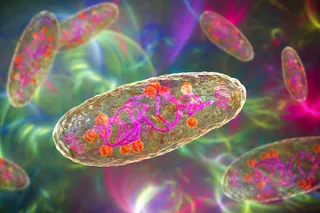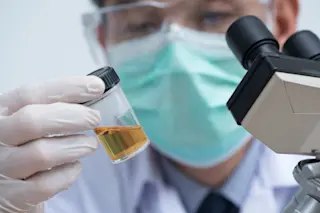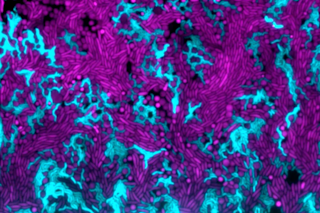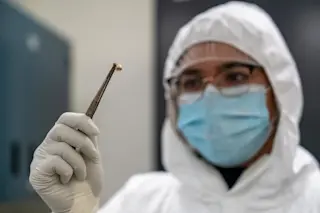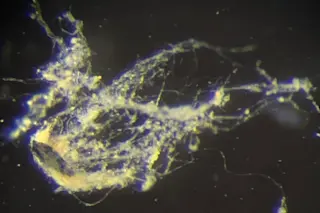When scientists discovered a new bacterium that can live on caffeine last month, it sparked many tongue-in-cheek headlines and ledes. "Bacteria survives on caffeine (like me)." "If you can’t live without a cup of coffee…" "Think you live on caffeine?" But after everyone had a good laugh about the extent to which modern existence is dependent on coffee and run through a few specifics about the bacterium, there was still one question left unanswered. When you get down to it, why can’t humans live on caffeine?
As any coffee addict can attest, we get a kick out of it because caffeine locks the central nervous system into delicious, delicious overdrive. When the molecule seeps into the brain and interferes with neurotransmitters, blood pressure rises, neurons work faster, and adrenaline production jumps.
But compare the calorie count for a black coffee with a latte and it’s obvious that humans don’t get ...




